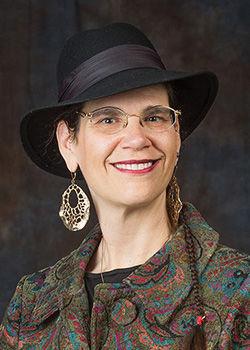I usually wait till the second paragraph for my public confession, but this time I already alluded to it in the title - yes, I use a comforter when going to sleep even in the summer! I use it all year round! I like the feeling of being embraced and held, I like the sensation of being contained.
My mind here is playing the bilingual game that I often play with myself. This Shabbat is not only Shabbat 'Va'etchanan' - a Shabbat of 'Beseeching' but it also one of the four Shabbatot that are named for their haftorah (the reading of the prophets after the Torah portion) - last week - Shabbat Chazon; the Shabbat between Rosh Hashanah and Yom Kippur - Shabbat Shuva; the Shabbat before Pessach - Shabbat Hagadol; and our Shabbat - Shabbat Nachamu - as the prophet Y'sha'ayahu (Isaiah 40:1) calls upon us: "Nachamu, Nachamu Ami / Be comforted / consoled, be comforted / consoled, my people." If you search for the function of 'con' in the English language, one of the definitions your search engine will offer you is: "Used in compounds to indicate the completeness, perfecting of any act, and thus gives intensity to the signification of the simple word" it is for this reason that I ask you to read Y'sha'ayahu's offering as 'be con-souled, be con-souled my people". The prophet is asking of us to find a way to reconnect to our soul and make it whole again. To be con-souled and comforted, but what does this mean, and how can we achieve this state of being?
I want to return to the opening verse of our Torah portion and bring it into our learning: "And I besought God (va'etchanan) at that time saying (lay'more)." Two well known and loved Chassidic masters, Reb Levi Yitzchak of Berdichev (1740-1809) and Reb Nachman of Breslov (1772-1810) read this verse in a similar way, creating a distinction between beseeching and saying. They don't read the verse as a precursor to what is going to come in the next verse but as a directive in itself. There is a request, a beseeching of God, that one can actually speak to God, to be able to say something in the presence of God. There is a va'etchanan moment that begs the possibility of lay'more.
I find myself asking what would this look like and how does one create this possibility of being able to share their heart with God, and to feel heard by God. I ask, what is the nature of this speech? My memory draws me back to a paper I wrote on the therapeutic relationship for a diagnostic course I took in my undergrad years (special education and history - at the time this was everything a person needed to go out in the world with). I remember discussing at length the need for a common language for the therapeutic discourse to be effective, and that the therapist needed to be attentive to the sensory mode their client was using and respond with it. Each one of us is aligned with a different one of our senses. Some of us "hear what is being said," some can "see the point being made," some can "feel where you are coming from," or even "touch upon an issue" or "smell that something is just not right." When we respond to someone using the sense in which they have expressed themselves, they feel heard / seen/ felt / touched in a qualitatively greater manner.
It is in this manner that I believe that Y'sha'ayahu is revealing to us what is the mode of communication that God needs to hear from us, how we can help each other as well and even if the Torah that is being presented to us is what we need for our growth and spiritual wellbeing. The repetition of the word 'nachamu' - be con-souled / comforted - is God's way of telling us what it is that God offers and needs in the process of rebuilding a relationship that only a few days earlier, on the ninth of Av, has experienced devastation and destruction.
Reb Shlomo Carlebach (1925 - 1994), my Teacher of many lifetimes, taught us many years ago, that the repetition comes because we are being asked to comfort with words of comfort. "How many times," he would ask, "do you find yourself saying to someone that has just shared a heart breaking story, or a painful experience, 'you think that's bad, let me tell you a really horrible story...' or 'I heard so-and-so went through something equally bad...'? We don't need to bring more heartbreak into the world; we don't need to compare hardships! What we are challenged by our prophet to do is, to find words of comfort to comfort with!"
I believe that 'nachamu' / 'comfort' and 'con-souling' is God's sixth-sense! It is with words of comfort, and words that help us put our soul back together again, after we have unraveled, that we can stand in the presence of God and feel heard. It is words of comfort and con-souling that God offers us to mend our brokenness. Not rebuke nor judgment, but rather comfort.
May we be such comforters and con-soulers for each other in the heat of the summer, and God willing, in the chill of the winter as well!
Shabbat Shalom.

